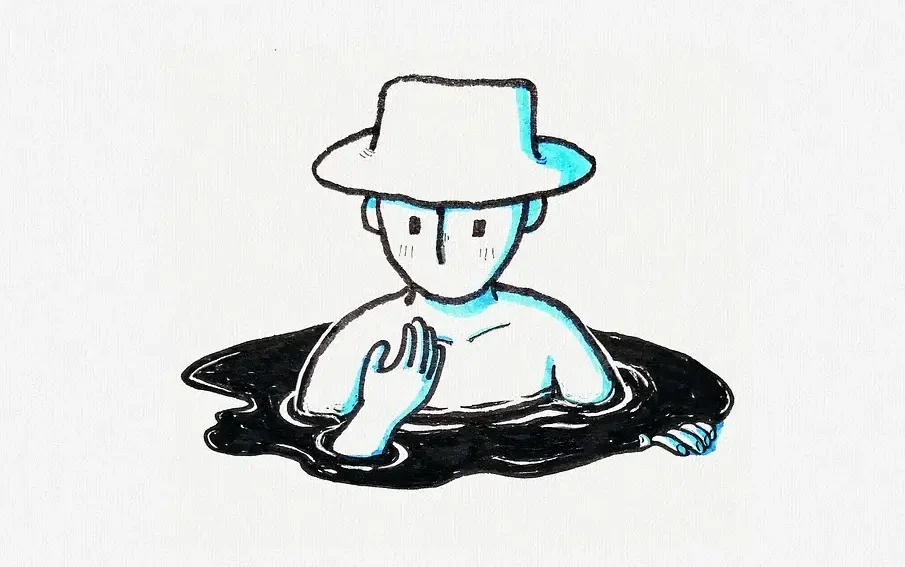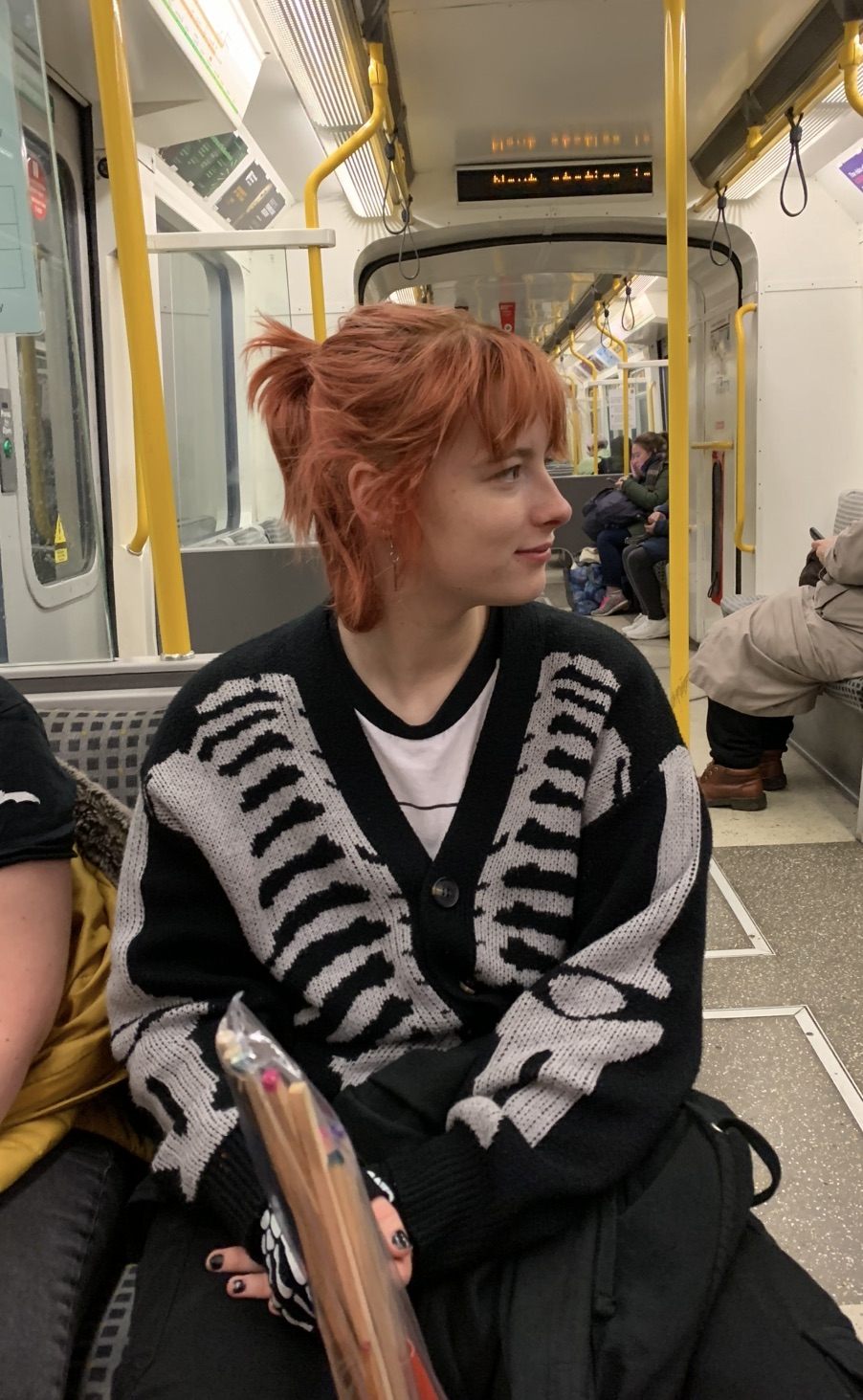Neurodivergence and Disability are wide spectrums which frequently intersect, collide, and interfere with one another. Add university and all its pressures into this mix, and we see just how important accessibility becomes. I decided to talk to some students at Newcastle University to find out what their experiences of being neurodiverse or disabled is like. I reached out to members of DMANsoc (Disability, Mental Health, and Neurodiversity Society), as well as some good friends living with extended conditions their opinions on Newcastle University and their lives within it.

Huge thanks to:
- Jeremy, studying Linguistics with German.
- Jasmine Di Bona, studying Film and Media
- Abi Crompton, studying Chemical Engineering
- Robin, studying Physical Geography
- Quinn, studying Mathematics
Some answers have been altered for clarity/ brevity.
How does being neurodiverse affect student life at Newcastle?
Jeremy: The overwhelming pressure to perform well academically sometimes means that I feel scared to go to a lecture. [As] the medication I take suppresses my immune system, I have had to miss lectures/seminars and social commitments due to being unwell. I also decided to limit my alcohol consumption and reduce socialising so I don’t get sick, which affects my social opportunities.
Jasmine: My planning is probably the most affected part of my student life. I find it hard to get work done without an imminent deadline, so I leave everything to the last minute and rush. My social life is also affected: I get tired quicker than my course mates and can’t socialise for too long. This means I don’t get as involved with socials as I would like.
Abi: I think the area most impacted by my neurodivergence is probably my ability to study outside of lectures. It takes enormous amount of effort to watch recaps or take notes or revise. I tend to think “if I don’t know it, I don’t know it” which is bad when I miss lectures.
Robin: Managing my workload is the most difficult aspect of student life as I get overwhelmed with many assignments at once.
Quinn: My social and course balance is most affected by my disability as I have to plan and decide which activities and courses will drain my mental and physical battery.
What tools and personal strategies provided by university are helpful to you?
Jeremy: Most of my university professors upload materials from lecturers and seminars at least 24 hours in advance which is useful for me as I can go over information the night before in case I wake up feeling too ill or anxious to go in person the next day.
Jasmine: Sometimes I find that see setting a ‘personal deadline’ helps me, where if a project is due in 2 weeks, I’ll set a goal finish a certain amount by 1 week. I also find my DSA study support helpful with this. I don’t need much intervention, I just find that a designated time to talk through my plans helps me organise. In terms of my social life, theres really not much I can do. Thankfully my housemates are mostly neurodivergent and understanding, so I’m able to hang out with them.
Abi: I usually use body doubling to help me do things I’m not able to do. Luckily I have another neurodivergent friend doing the same course , so we work while sitting in the same room. Or if they aren’t available, I invite someone to sit with or call me while I work.
(Body Doubling: working in proximity to another person to boost productivity.)
Robin: The disability support service is really helpful… resources such as the transition event at the start of the year and my disability practitioner ha[ve] been really helpful at different points throughout the academic year. My personal tutor helped me organise, manage my workload, and has answered course-specific questions to reduce my stress.
Quinn: I keep regular meetings with my disability advisor and DSA mentor to help me plan and find potential ways to reduce the amount of drainage and fatigue.
Do you think your uni is well equipped to aid students with conditions?
Jeremy: Some lecturers believe that the 24-hour rule for learning materials is optional or doesn’t apply to them, which is quite frustrating. Sometimes I wish they could do more, but I can never come up with actionable changes to suggest.
Jasmine: I think that in terms of neurodiversity Newcastle is great, the transition program really helped me and the continued ASN (Autistic Students’ Network) network meetups mean neurodivergent students have a regular group to see. My student support plan and subsequent support meetings were well managed by friendly and familiar staff.
The only issues I have had are when individual professors don’t read the SSPs which they are supposed to. Newcastle University could definitely improve on its physical accessibility: there are some buildings which are difficult to access and broken lifts that have remained broken for months. The university could benefit from more education being given to the professors about accessibility requirements, as some don’t provide lecture slides 24 hours before the lectures – if at all – which they are supposed to do. Some assessments on the course do not follow accessibility guidelines.
Abi: Newcastle Uni has definitely taken my autism seriously. Before I started, I had a meeting with a disability officer for an SSP, which was sent around to all my module leaders and lecturers. I am not sure if they have all read it, as there is no way for me to test that. The uni helped by giving me extra time and a separate room for exams as soon as I asked for it.
In a couple of my midterm exams a separate room was not available. For the first midterm it wasn’t available, the module leader offered support and made sure I sat near the door. He stayed close. The second time it happened, the module leader didn’t help much… but did ask if I was okay when I left.
Quinn: I find Newcastle University well equipped to help support students with disabilities/ neurodivergence. They provide a range of services and support staff to help find these services, but the tutors and people running the courses don’t always check what is needed. Newcastle University could improve by better informing the need for support and accessibility adjustments to the tutors and course leads.
Overall, it seems like there is still has some work for unis to do. At Newcastle University, we have SSPs (Student Support Plans) and Disability Advisors, who act as liaisons between the school and the student. This has its benefits and downfalls. On the one hand, developing a relationship with just one person rather than finding the courage to self-advocate in front of troupes of staff can be extremely helpful. On the other, you are then performing at the whim of one person’s work schedule. It’s clearly difficult for universities to find the right support that actually works.
While certain frameworks are in place, it seems that students seem to want more understanding on an individual level. A repeated issue is lecturers not posting lecture slides 24 hours before a lecture as required. However, NU does a lot of things well in providing ports of communication and fostering societies such as DMANSoc.
For more, check out our guide to living as a neurodivergent student.

Topic expertise: Student Cities, Cost of Living, Nightlife, Wellbeing, Accommodation
FAQs on being neurodiverse at university
Neurodiversity is an umbrella term that recognises conditions like autism, ADHD, dyslexia, dyspraxia, and more as natural variations in how people think and process information. At university, being neurodiverse often means navigating studies and social life in a different way, with both challenges and strengths.
Most universities offer a range of support, including disability services, learning support tutors, exam adjustments, mentoring schemes, and access to the Disabled Students’ Allowance (DSA). Many campuses also have neurodiversity or disability societies for peer support.
Challenges can include adapting to new routines, managing sensory environments like noisy lecture halls, time management, and dealing with stigma or misunderstanding. However, with the right support, many students thrive and develop strong coping strategies.
Neurodiverse students often bring unique perspectives, creativity, problem-solving skills, resilience, and passion for their chosen subjects. Many universities value these differences and encourage neurodiverse voices across academic and social life.
Inclusivity can be improved through flexible teaching methods, accessible lecture materials, quiet study spaces, clear communication from staff, and better awareness training across campus. Creating a culture that celebrates neurodiversity rather than viewing it only as a challenge makes a huge difference.
Authors
-
Hi, I'm Reid! I'm an English Literature Student at Newcastle University. I love writing fiction, poetry, and listening to the loudest music I can find.
Top tip for students? You don't have to do everything in front of you. While University is ripe with both career opportunities and social events, remember to take life at your own pace!
View all posts
-
Aminah is a dedicated content expert and writer at Unifresher, bringing a unique blend of creativity and precision to her work. Her passion for crafting engaging content is complemented by a love for travelling, cooking, and exploring languages. With years spent living in cultural hubs like Barcelona, Sicily, and Rome, Aminah has gained a wealth of experiences that enrich her perspective. Now based back in her hometown of Manchester, she continues to immerse herself in the city's vibrant atmosphere. An enthusiastic Manchester United supporter, Aminah also enjoys delving into psychology and true crime in her spare time.
View all posts


